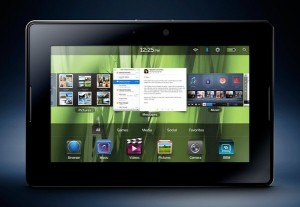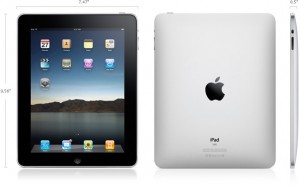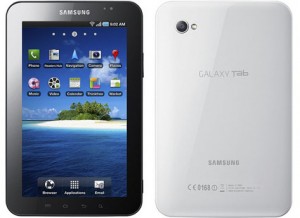Last year, Apple came out with a “tablet PC” called Ipad. It can be used to watch movies and read books in a bigger screen. Other than that, the Ipad is nothing else but a huge Ipod. In doing so, Apple has developed a competitive advantage as no one in the industry has ever manufactured such products. The IPad (9.56X7.47X0.5 inch) has a 1GHz Apple processor, several sensors (light and speed), built-in speakers, microphone, and up to 64 GB of flash drive memory. It can be used to read ibooks, watch movies, play games, listen to music, or surf on internet.
Blackberry is soon launching its own version of the tablet: the Playbook. The Playbook is slightly smaller and lighter (7.6X5.1X0.4 inches). The Playbook is slightly better in terms of technology with its 2 integrated cameras and internal RAM. It, however, lacks a main component that customers are looking for: the giant pool of applications that Apple possesses.
Samsung also came out with its own version of tablet: the Galaxy Tab or the APad (Android Pad). This Galaxy Tab is almost similar to Blackberry’s Playbook and Apple’s Ipad. The only main hardware/software differences is that it has a GPS, Swype (typing without lifting fingers” and use an android operating system. Another important factor that consumer look at before buying the Galaxy Tab is its price. The little device costs $100, which is relatively cheap compared to Apple’s Ipad ($499) and Blackberry’s Playbook (NA).
All those companies seem to target the same market segment by creating those products: people who find it convenient to have a gadget lighter and better looking than a laptop which would facilitate its transportation to/from school/work. Because of all its limitations, I find it less practical than a regular laptop. Its virtual keyboard considerably lowers productivity as it will be slower to type on a touchscreen. Microsoft word/ excel documents or internet articles that require adobe flash cannot be opened.


[…] In Erick’s Blog, he thinks that all 3 companies are targeting the same market segment, but I think that Apple may target other segments at the same time. […]